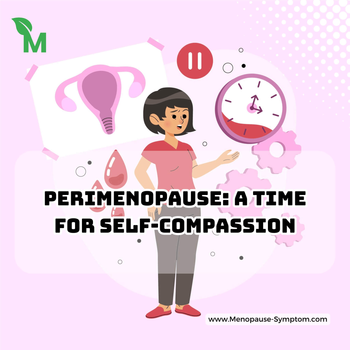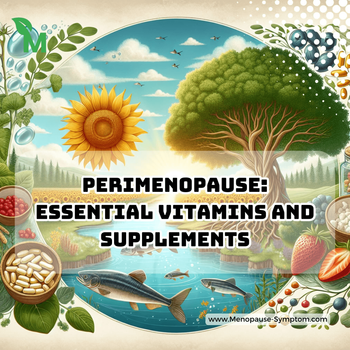Perimenopause: Improve Your Sex Life
On
07/10/2024Reading time:
6 min
Summary:
Perimenopause is a natural stage in a woman's life, usually starting at the age of 40. Perimenopause is a stage where a woman's body experiences many psychological and physiological changes, as well as health problems before entering menopause.
Women often have symptoms such as irregular menstruation, hot flashes, sweating, insomnia, anger for no reason, headaches, dizziness, thin and dry vagina, susceptibility to urinary tract infections, declining beauty...
After this stage, women will enter menopause - cessation of menstruation, meaning that ovulation does not occur, menstruation will disappear and fertility will no longer be possible. One of the common problems that many women face during perimenopause is the decline in estrogen levels. This change not only affects overall health but also plays an important role in sex life.
Why does perimenopause reduce sexual desire?
During perimenopause, estrogen levels gradually decrease, causing a variety of symptoms such as hot flashes, insomnia and discomfort. In particular, vaginal dryness is one of the most common problems that women experience. This dryness not only reduces pleasure but also causes pain during intercourse, thereby affecting sexual desire. This is one of the reasons why many women feel shy when talking about their sex life during perimenopause.
How to improve your sex life during perimenopause
Fortunately, there are many measures that you can take to improve your sex life during perimenopause. Here are some helpful suggestions:
· Use support products: Vaginal moisturizers such as gels or creams can help reduce dryness, creating a more comfortable feeling during intercourse. These products often contain natural ingredients, helping to increase moisture without causing irritation.
· Talk to your partner: It is important to communicate with your partner about the physical and emotional changes you are experiencing. Don’t be afraid to share your feelings and the problems you are facing. Open communication can create understanding, which will help you both support each other during perimenopause.
· Exercise regularly: Exercise not only improves your health but also reduces stress and anxiety – factors that can negatively affect your sexual desire. You can try yoga, walking, or other forms of exercise that you enjoy. Regular exercise also helps improve blood circulation, thereby increasing feelings of arousal.
Regular check-ups: Regular check-ups with your doctor are important during perimenopause. Your doctor can help you monitor your symptoms and recommend appropriate treatments. If you are concerned about changes in your sex life, don't hesitate to talk to a specialist about it.
Learn about hormone replacement therapy (HRT)
Some women in perimenopause may find an improvement in their sex life with hormone replacement therapy (HRT). This usually involves the hormones estrogen or progesterone to help restore the body's natural hormone levels. However, taking hormones requires close supervision from a doctor as it can cause some side effects. Discuss the benefits and risks of hormone therapy with your doctor and make an informed decision.
Explore new ways to have sex
Perimenopause doesn't have to mean a boring sex life. This is a great opportunity for you and your partner to explore new things. You can try changing positions, using sex toys, or finding new ways to communicate to add excitement to your relationship. Being creative in your sex life can help both you and your partner feel more excited, even during perimenopause.
Take care of your mental health
In addition to physical health, mental health also plays an important role in maintaining a healthy sex life. During perimenopause, many women may feel self-conscious, anxious, or stressed. You can practice meditation, yoga, or other stress-reducing activities. These activities will help you improve your health and mood, and you will feel more confident in your sex life.
Connect with a community
Finally, connecting with others going through perimenopause can help you feel more included and less alone. Joining support groups or online seminars can provide you with useful information, as well as experiences from others who have gone through this stage. This is a great way to learn from those who have gone through it and find effective solutions to improve your sex life during perimenopause.
Conclusion
Perimenopause is a natural part of life, and although it can bring many challenges to your sex life, it is important not to let those challenges reduce the joy and satisfaction in your relationship. By applying the suggestions above, you can improve your sex life in a positive way. Remember, taking care of your physical and mental health, along with open communication with your partner, will lead to a better experience during perimenopause. Love and intimacy can still be maintained, if you know how to care for and adjust to these changes in your life.
This way, you can not only get through perimenopause with ease, but also explore and enjoy the wonderful moments in your sex life. Enter this stage with confidence and optimism, because life is still full of opportunities and joys waiting for you to discover!
Source: Team MPS compiled, analyzed and wrote. Please dont reup without source. Many thanks.

Perimenopause: A Time For Self-Compassion
09.02.2024
Perimenopause is a special transitional period in a woman's life. Perimenopause is the time when the body begins the natural transition to menopause, marking the end of a woman's reproductive years.

Perimenopause: Essential Vitamins And Supplements
09.02.2024
Perimenopause is an important stage in every woman's life, marking the transition from youth to adulthood.

Perimenopause: You Are Not Alone
Invalid Date
Perimenopause is not an easy topic to discuss for women, but it is a stage that most women go through, and it is important to understand that you are not alone in this journey.
